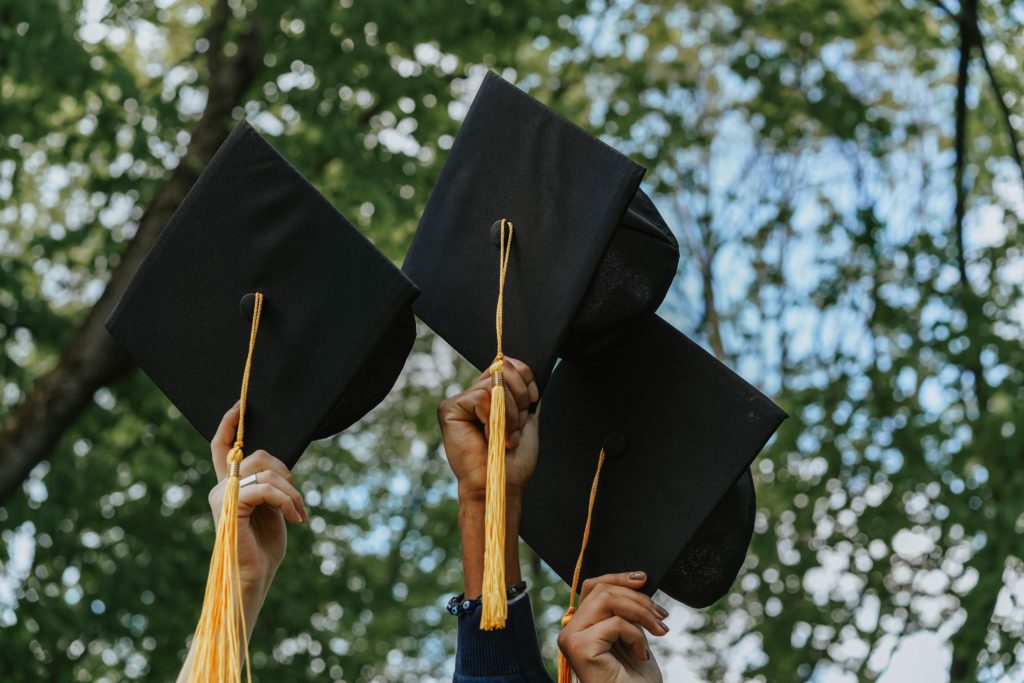
Dear friends and neighbors,
Recently, I was able to attend my niece’s high school graduation party. It was wonderful to see her and her classmates celebrate this exciting milestone.
It struck me that students who are graduating from high school this year – and those who graduated last year – have experienced something truly unprecedented, something no other graduating classes have ever gone through up to this point in our history. The COVID-19 pandemic, with its restrictions on in-person learning, social distancing requirements, online classes and postponed/cancelled activities, has challenged these students and their families in so many ways.
And yet, as we begin to come out the other side of this with the help of vaccines and our front-line workers – health care workers, first responders, grocery store employees, farmworkers and others who kept our state going even as many of us were staying home – we see the true strength and resilience of the people of this state.
That’s why I’m so happy the Legislature passed policies this year that will help students who have been most harmed and disproportionally impacted by the pandemic, by economic barriers, and by systemic racism. Because every student in Washington deserves opportunities for success, both in and beyond high school.
Here are some of the bills from the 2021 session that will provide these opportunities, now and into the future:
Expanding Opportunity Scholarships for community and technical college students
The Washington State Opportunity Scholarship’s (WSOS) Career and Technical
Scholarship provides flexible scholarship money for students in high-demand trade, STEM, or health care programs at community and technical colleges in our state. Over half the students served are students of color. The scholarship can be used to cover tuition, fees, housing, transportation, food, and more. But many students in these programs are older, nontraditional students who didn’t graduate from a Washington state high school, meaning they can’t access the scholarship. House Bill 1425 opens up the WSOS Career and Technical Scholarship to these residents, and also expands eligibility for WSOS’s Rural Jobs Initiative, which allows rural students in certificate, degree or training programs in high-demand fields to access a wider range of those programs around the state.
Equity and access in community and technical colleges
Research shows that students do better academically when they learn from people who look like them, and that’s why promoting diversity at all levels of community colleges, especially among faculty, is so important. With Senate Bill 5194, all Washington State Community and Technical Colleges must submit strategic plans beginning in 2022 for achieving diversity, equity, and inclusion on their campuses. The plans must be publicly posted and culturally appropriate, and must define key terms including diversity, equity, and inclusion. The State Board for Community and Technical Colleges must develop a model faculty diversity program to aid in recruitment and retention of faculty from diverse backgrounds. The bill also considers individuals who have lived in Washington for at least one year as resident students for the purposes of aid and tuition.
Expanding access to the College Bound Scholarship
In order to be eligible for the College Bound Scholarship, students have been required to sign a pledge. Without this form, the student cannot access the scholarship. But what might seem like a simple bit of paperwork can actually be a barrier for some otherwise qualified students whose home or family situations present challenges to getting that one piece of paper submitted. Senate Bill 5321 directs the Washington Student Achievement Council to develop a process to automatically enroll eligible students into the College Bound Scholarship program. This is good policy, because research shows the program boosts college completion for those who get it, and we should not let a simple piece of paper stand in the way of a student’s college dreams.
Building a foundation of equity in medical training

Communities of color have been disproportionately affected by COVID-19 as well as other illnesses, like heart disease and diabetes. Studies show that fewer medical errors occur and patients are more likely to follow the care recommended by medical providers if the provider shares their background and experience and is sensitive to patients’ cultures. Senate Bill 5228 directs public medical schools are to develop health equity curriculum for medical students, and requires students at these schools to complete coursework on health equity prior to graduating. It will ensure that students who graduate from medical schools in Washington understand and can connect with their patients from diverse backgrounds and ensures that schools are working to admit more students from diverse communities.
Expanding investments in our behavioral health workforce
Here and across the country, there is a compelling and urgent need for health care providers for mental health and substance use disorders. Demand for these services exceeds the current capacity, and the pandemic only underscored this reality. House Bill 1504 strengthens coordinated investments in behavioral health workforce training to meet the growing need for behavioral health services in Washington. It also requires that a portion of nonfederal funds in the Health Professional Loan Repayment program be prioritized for demographically underrepresented populations. Additionally, the Health Care Authority is directed to establish a behavioral health workforce pilot program to address a shortage of supervision hours and to provide training support grants to community mental health and substance use disorder treatment providers. And it increases the cap on state match dollars for the Washington State Opportunity Scholarship Advanced Degrees Pathways Account.
Meeting the high demand for computer science degrees
There are 16,000 computer science job openings in the Puget Sound area, and less than 15 percent of individuals appropriately credentialed to fill them. For every computer science graduate in our state, about four are imported from outside the state to fill the need. Senate Bill 5401 helps meet the need by opening the door for more community and technical colleges to offer computer science applied baccalaureate degrees. This expansion helps establish equal geographic access throughout the state, since many students are place-bound and do not have the ability to move to finish their bachelor’s degree at a college in another part of the state.
Additional investments in student success
In addition to the above bills, the new two-year state operating budget, the Washington Recovery Budget, keeps our public K-12 schools and our state colleges and universities financially whole during these pandemic times. The budget also includes $52.5 million for additional counselors in high-poverty schools, and $15.9 million for the Guided Pathways program, which helps community college students finish their programs and successfully graduate.
If you have questions about these bills, or any other legislative issues, please don’t hesitate to reach out to me. It’s an honor to serve the 27th Legislative District, and I’m always glad to respond to your questions or feedback.
Sincerely,

